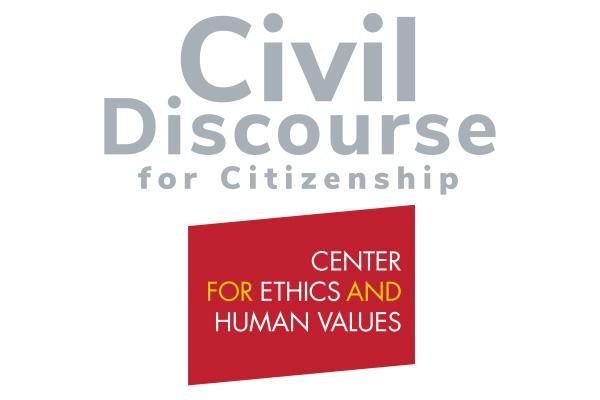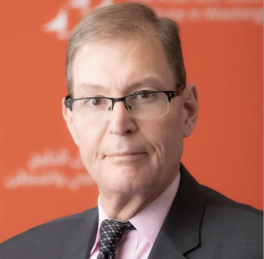
Considering the current state of affairs, is a two-state solution to the Israeli-Palestinian conflict still possible? If so, what moral considerations bear on whether stakeholders should favor it? If not, what alternative options are available for pursuing peace, and how should we evaluate those options? In this Forum, Dr. Ian Lustick (University of Pennsylvania) and Dr. Hussein Ibish (Arab Gulf States Institute) will present differing perspectives on these questions.
This student-moderated discussion is part of CEHV's "Civil Discourse Forums" series. Forum topics are selected by our undergraduate Civil Discourse Fellows trained in the 4Cs of civil discourse (Be Curious, Be Charitable, Be Conscientious, Be Constructive).
CEHV's Civil Discourse for Citizenship initiative is pursued with generous support from the Derrow Family Foundation and in partnership with Ohio State's Listen. Learn. Discuss. initiative.
Speakers
Dr. Ian Lustick
Dr. Lustick holds the Bess W. Heyman Chair in the Political Science Department of the University of Pennsylvania. He teaches Middle Eastern politics, comparative politics, and computer modeling. He is a recipient of awards from the Carnegie Corporation, the National Science Foundation, the National Endowment for the Humanities, and the Social Sciences Research Council. Before coming to Penn he taught for fifteen years at Dartmouth College and worked for one year in the Department of State. His present research focuses on the implications of the disappearance of the option of a negotiated “two-state solution” to the Israeli-Palestinian conflict and techniques of counterfactual forecasting. He is a past president of the Politics and History Section of the American Political Science Association and of the Association for Israel Studies, and a member of the Council on Foreign Relations. Among his books are Arabs in the Jewish State (1980); For the Land and the Lord (1988, 1994); Unsettled States, Disputed Lands (1993); Trapped in the War on Terror (2006); and Paradigm Lost: From Two-State Solution to One-State Reality (2019).
Dr. Hussein Ibish

Dr. Hussein Ibish is a senior resident scholar at the Arab Gulf States Institute in Washington. He is a weekly columnist for The National (UAE), former columnist for Bloomberg, regular contributor to The Atlantic and The Daily Beast, and frequent contributor to many other U.S. and Middle Eastern publications. He has made thousands of radio and television appearances and was the Washington, DC correspondent for the Daily Star (Beirut). His most recent book is What’s Wrong with the One-State Agenda? Why Ending the Occupation and Peace with Israel is Still the Palestinian National Goal (ATFP, 2009). He previously served as a senior fellow at the American Task Force on Palestine, executive director of the Hala Salaam Maksoud Foundation for Arab-American Leadership, and as communications director for the American-Arab Anti-Discrimination Committee. Ibish was included in all three years (2011, 2012, and 2013) of Foreign Policy’s “Twitterati 100,” the magazine’s list of 100 “must-follow” Twitter feeds on foreign policy.
Moderators
Mohamed Manaa
Mohamed is a fourth-year majoring in Political Science with minors in history and music. He serves as the president for the United Nations Association chapter on campus and is a member of the Collegiate Council on World Affairs. He is currently conducting research with Dr. Vladimir Kogan in the Department of Political Science while interning with the Middle East Studies Center on campus.

Tyler Monk
Tyler is a fourth-year student majoring in PPE (Philosophy, Politics, and Economics) with a minor in Religious Studies and seeking a certificate in Civil Discourse. He is a part of the Undergraduate Student Government, currently serving as a University Senator, and on the University Conduct Board. He is also the President of the Leighton Undergraduate Philosophy Club, Secretary of the PPE Society, and involved with the Ethics Bowl Team. Tyler has worked as a constituent aide in the Ohio House of Representatives and is currently interning at a Columbus based lobbying firm.
